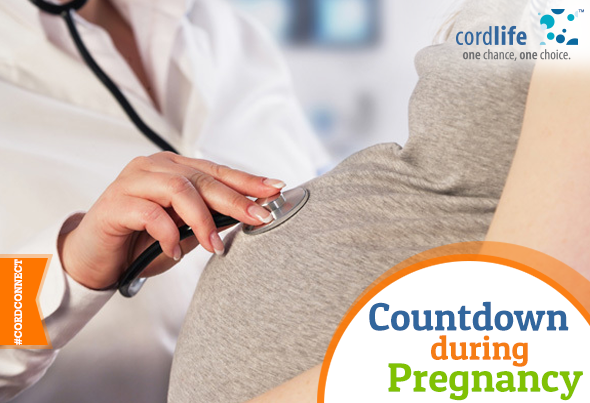Table of Contents
The last few days of pregnancy are amongst the most daunting of any woman’s life. Once week 33 commences, every expectant woman is counting down to day of delivery.
As an expectant mother, you cannot wait to give birth and hold your new baby for the first time. This anticipation grows in the last few weeks, since the baby moves in the womb quite a few times and also grows in weight. These weeks are crucial in the run up to the actual delivery of the baby. Any changes in the baby’s movement, or any cramping in the abdomen must be investigated at once.
Here is what you can expect in the last few weeks:
33 weeks pregnant. By now, the baby has grown to about three kilograms in weight and may grow about an inch more in the coming weeks. The baby will have developed hair and its limbs and other body parts will be developed too. By this week, the baby will have moved into its head-down position, in which it will stay till it is born. Also, there is less amniotic fluid in the uterus at this point, so every time the baby moves, the mother will feel it more intensely.[1] This means lots of restless nights as the baby kicks and moves. Mothers are advised to drink plenty of water, go for short walks and rest when they feel sleepy.
34 weeks pregnant. By this time, doctors say the baby’s brain and lungs continue to develop and that it can hear sounds quite well. The baby might thus move more or faster in response to certain sounds. Meanwhile, the mother’s uterus continues to prepare for childbirth. The uterine walls harden and contract, as a sort of rehearsal for impending labour. Though this passes unnoticed in many women, some women experience sharp contractions at this time and must rush to their doctor. These are known as Braxton Hicks contractions and are termed as ‘false labour’[2].
35 weeks pregnant. With the baby’s head pressing against the mother’s pelvis, she feels the frequent need to urinate[3]. Some women respond by drinking less water, but this is not recommended. The woman must continue drinking lots of water and try and empty her bladder completely every time she visits the restroom. The baby is also still gaining weight at this time, so the weight in the belly becomes quite considerable at this time.
It is normal to feel heavy and tired during these crucial weeks of pregnancy; in fact, it is recommended! A growing weight in the belly means that the baby is growing at an expected pace. The longer the baby remains inside the womb, the higher are its chances of it being fully developed and in good health. Though the child’s activity quietens down considerably as compared to earlier weeks, the mother must inform her doctor at once if she feels that the baby is very still for long periods of time, or if she is experiencing unexpected cramps and vaginal bleeding.
[1]http://www.bounty.com/pregnancy-and-birth/pregnancy/pregnancy-week-by-week/33-weeks-pregnant
[2]http://www.webmd.com/baby/guide/your-pregnancy-week-by-week-weeks-31-34?page=2
[3]http://www.whattoexpect.com/pregnancy/week-by-week/week-35.aspx
